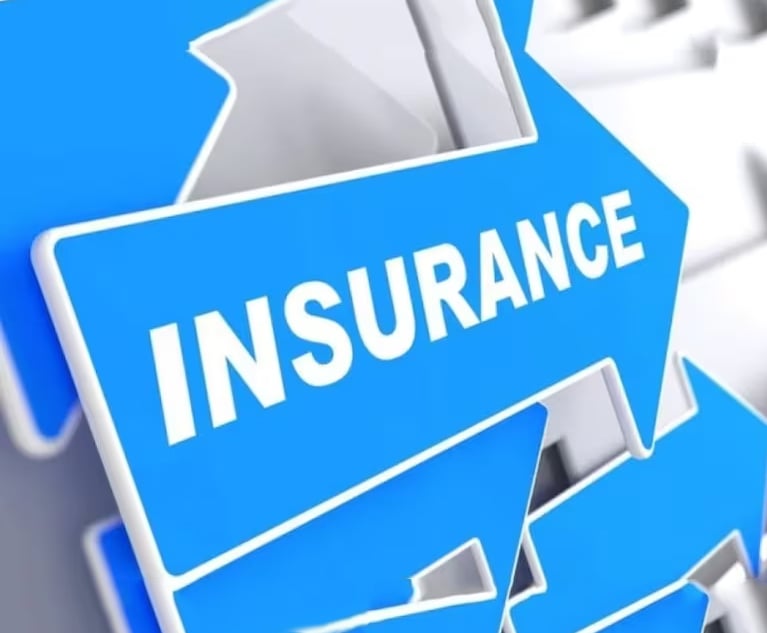Despite recently strong financial results, insurers might be teetering on the brink of disaster unless they exercise financial responsibility, embrace globalization and better educate the public about their industry, a top Lloyd's official warned here last week.
Julian James, Lloyd's director of worldwide markets, noted forecasts that 2006 profits for property-casualty insurers could be the best in 51 years at up to $60 billion, with return on equity of 14.5 percent.
However, during his address here before the annual meeting of the Property Casualty Insurers Association of America, he cautioned that “despite our current good fortune, I'm going to make a strong case today that we are still standing near the edge of the cliff.”
Mr. James said that unlike 2002, when he appeared before the PCI during a bad time for the industry, urging insurers to embrace change, this year carriers are in “grave danger” despite the industry's growing profits–and don't know it.
Mr. James cited as one reason for concern the industry's historical trend, noting that in the last 30 years, insurers overall have managed an underwriting profit only in 1977, 1978 and 2004.
Current danger signs, he said, include weak premium growth of 2.9 percent for the first six months of the year, premium rates sliding downward, and industry surplus rising, adding up to “a pretty clear picture of stagnant demand and oversupply.”
Additionally, he mentioned regulatory intervention–especially in disaster-prone states–to keep insurers from charging risk-based rates. He also noted signs pointing to a slowing U.S. economy, such as a decline in new housing starts.
Mr. James took note of headlines calling insurers “villains” in the wake of Hurricane Katrina, while also citing a forthcoming U.S. Department of Homeland Security probe of carriers' claims-handling following the monster storm, mandated recently by Congress, as signs that insurers are once again in the public spotlight.
Mr. James wondered if at this point insurers will avoid stepping outside of their core business, while allowing prices per unit of coverage to go lower, and thus incur underwriting losses.
The rational course for insurers, he added, is to not write for market share but to focus on underwriting performance, make terms and conditions as important as price, and stay with lines they know and can price properly.
The choice facing insurers, he said, is to either build on their recent progress toward sustainable profitability, or “drift back into the financial intensive care ward.”
He urged his audience to “challenge the notion that 'profit' is a dirty word” and to do a better job of explaining to policyholders, regulators and other key stakeholders how a solvent industry helps the world economy.
Lloyd's is doing its part, Mr. James said, by contributing funds to a public relations initiative of the CEO Roundtable to improve the industry's image.
Insurers should also mention, he advised, that they paid $170 billion to cover catastrophe losses in the last decade–including $80 billion over the past two years for U.S. hurricanes.
On the issue of globalization, Mr. James said wealth patterns will be shifting dramatically, as will insurance demand. He said Lloyd's is seeking reinsurance licensing in China, and believes it is the right time to further expand the geographical diversity of its market.
Globalization, he noted, requires more dialogue between national regulators, with industry support and representation in the process. The United States, however, is “bogged down in an ancient hodge-podge of insurance rules,” preventing competition, innovation and lower premiums, he added.
Mr. James pointed to the fact that the U.S. requires foreign insurers to post collateral equal to 100 percent of gross liabilities, while there is no such domestic requirement even for financially weak insurers.
“Our thinking and behavior must change if the insurance industry is to be a stable, secure industry for our policyholders and shareholders of the future,” he concluded.
Infobox, with James mug and red flags:
Want to continue reading?
Become a Free PropertyCasualty360 Digital Reader
Your access to unlimited PropertyCasualty360 content isn’t changing.
Once you are an ALM digital member, you’ll receive:
- Breaking insurance news and analysis, on-site and via our newsletters and custom alerts
- Weekly Insurance Speak podcast featuring exclusive interviews with industry leaders
- Educational webcasts, white papers, and ebooks from industry thought leaders
- Critical converage of the employee benefits and financial advisory markets on our other ALM sites, BenefitsPRO and ThinkAdvisor
Already have an account? Sign In Now
© 2024 ALM Global, LLC, All Rights Reserved. Request academic re-use from www.copyright.com. All other uses, submit a request to [email protected]. For more information visit Asset & Logo Licensing.








